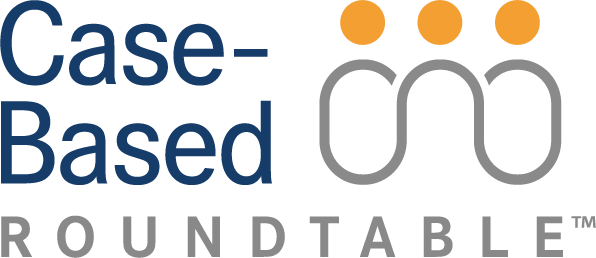
ADC Loncastuximab Shows Signs of Durable Response in R/R DLBCL

In the first part of a 2-article series, Matthew Matasar, MD, MS, discusses where loncastuximab fits into the treatment of patients with relapsed/refractory diffuse large B-cell lymphoma and the data that led to the antibody drug conjugate’s approval.
CASE
- A 73-year-old woman presented with fever, headaches, and 7-lb unintentional weight loss.
- Medical history: no family history of cancer, and hyperlipidemia that was well controlled with simvastatin.
- Physical exam: palpable bilateral cervical lymphadenopathy
- Laboratory results: lactate dehydrogenase, 265 U/L (280 U/L upper limit); Hemoglobulin, 10.8 g/dL; bilirubin, 1.3 mg/dL (1.2 mg/dL upper limit); creatinine, 1.7 mg/dL (1.2 mg/dL upper limit); all others within normal limit
- Hepatitis B, C and HIV negative
- Lymph node biopsy; Immunohistochemistry panel: CD10+, CD20+, which confirmed diffuse large B-cell lymphoma (DLBCL)
- Fluorescence in situ hybridization: negative for rearrangements of BCL6, BCL2 and C-MYC
- Whole body PET/CT scan showed diffuse adenopathy, largest node 3.9 cm.
- MRI of the brain showed no evidence of lesions.
- ECOG performance status: 1
- Stage III disease; International Prognostic Index score 2; low-intermediate risk
- Patient received 6 cycles of R-CHOP (rituxan [Rituximab], cyclophosphamide, doxorubicin hydrochloride, and vincristine sulfate), which was well-tolerated.
- She had a complete response (CR) at the end of treatment, but 1 year later the patient presented with diffuse lymphadenopathy, confirmed by PET/CT scan.
- Biopsy showed relapse of the same DLBCL.
- Patient received 6 cycles of polatuzumab vedotin (Polivy), bendamustine, and rituximab (Pola-BR).
- Had stable disease for 6 to 8 months before progression
- Current treatment: Loncastuximab tesirine-lpyl (Zynlonta)
Targeted Oncology: What are the current approved therapies for a patient case like this?
Matthew Matasar, MD, MS: [We have] loncastuximab, which is an antibody-drug conjugate [ADC] targeting CD19 with a [cytotoxic pyrrolobenzodiazepine (PBD)] payload.1 We have polatuzumab [given] in the form of Pola-BR; we have tafasitamab [Monjuvi] plus lenalidomide [Revlimid] as well, and both of those are considerations even in the second line setting.2,3 Selinexor [Xpovio] is technically approved [in this setting],4 although nobody uses it as far as I'm aware, and then we have the 2 more recent approvals of the 2 bispecific therapies. Those being epcoritamab [Epkinly] and glofitamab-gxbm [Columvi] in patients with multiple relapse DLBCL in the third-line setting and beyond.5,6
What led to the approval of loncastuximab?
It is an ADC targeting CD19 and the PBD [payload] is…a direct cytotoxic. It was approved on the basis of the phase 2 LOTIS-2 trial [NCT03589469], which was a multicenter single arm study of loncastuximab monotherapy in patients with relapsed DLBCL in the third-line setting or beyond, and it was a very straightforward trial design.7
Patients received loading doses of loncastuximab every 3 weeks at a dose of 0.15 mg/kg that then drops down to 0.075 mg/kg, and after those 2 doses, it's continued every 3 weeks for up to 1 year.7 Then it can be given as maintenance [therapy] afterwards. Some people do this in routine practice and some don't, but the option is available.
What was the makeup of the patients on the trial?
The patients treated in the study were a relatively real-world patient population. Patients were largely diagnosed with advanced stage disease [77%] and were relatively heavily pretreated, as per the study design itself, [with a median of 3.0 (IQR, 2.0-4.0) prior lines of therapy].7
The majority of patients were refractory to the most recent line of therapy [58%], and a small percentage of patients had been refractory to every line of therapy [17%], as well.... Of note, there were 13 patients in LOTIS-2 who had prior CD19 chimeric antigen receptor [CAR] T-cell therapy and those patients all had biopsies, [which showed] CD19 expression before enrollment in the study.7
What were the main efficacy results of this trial?
The median progression-free survival was relatively favorable [for patients on loncastuximab at 4.9 months (95% CI, 2.9-8.3)]. Particularly in patients who achieve a CR there does appear to be some measure of durability of response, although these patients continue to be followed.8 Similarly with overall survival [OS], patients had a reasonable OS all things considered because these are patients who are either [being treated] post CAR T-cell therapy or were CAR T-cell ineligible, and they had a median overall survival of 9.5 months [95% CI, 6.7-11.5].8
References:
1. FDA grants accelerated approval to loncastuximab tesirine-lpyl for large B-cell lymphoma. News release. FDA. April 23, 2021. Accessed January 10, 2023.
2. FDA approves polatuzumab vedotin-piiq for diffuse large B-cell lymphoma. News release. FDA. June 10, 2019. Accessed January 10, 2023.
3. FDA grants accelerated approval to tafasitamab-cxix for diffuse large B-cell lymphoma. News release. FDA. August 3, 2020. Accessed January 10, 2023.
4. FDA approves selinexor for relapsed/refractory diffuse large B-cell lymphoma. News release. FDA. June 22, 2020. Accessed January 10, 2023.
5. FDA grants accelerated approval to epcoritamab-bysp for relapsed or refractory diffuse large B-cell lymphoma and high-grade B-cell lymphoma. News release. FDA. May 19, 2023.
6. FDA grants accelerated approval to glofitamab-gxbm for selected relapsed or refractory large B-cell lymphomas. News release. FDA. June 16, 2023.
7. Caimi PF, Ai W, Alderuccio JP, et al. Loncastuximab tesirine in relapsed or refractory diffuse large B-cell lymphoma (LOTIS-2): a multicentre, open-label, single-arm, phase 2 trial. Lancet Oncol. 2021;22(6):790-800. doi:10.1016/S1470-2045(21)00139-X
8. Caimi PF, Ai W, Alderuccio JP, et al. Loncastuximab tesirine in relapsed/refractory diffuse large B-cell lymphoma: long-term efficacy and safety from the phase 2 LOTIS-2 study. Haematol. 2023. doi:10.3324/haematol.2023.283459









































